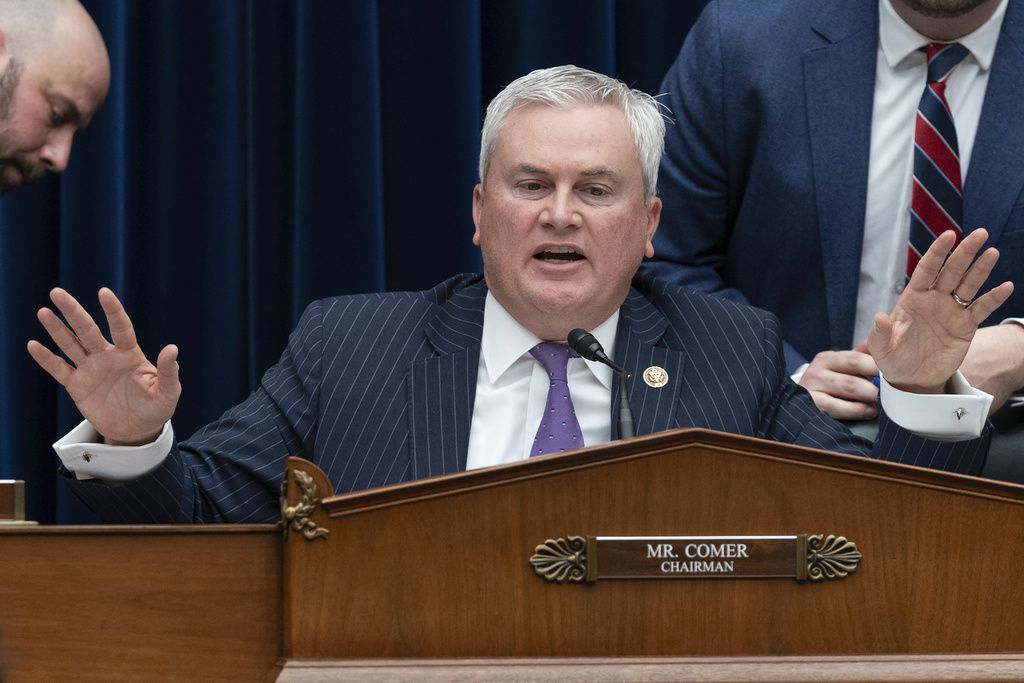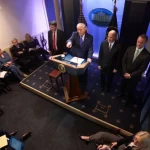

EXCLUSIVE — The House Oversight Committee is kick-starting an investigation into how often government employees engage in union activities while on the clock.
House Oversight Committee Chairman James Comer (R-KY), Oversight Subcommittee on Government Operations and the Federal Workforce Chairman Pete Sessions (R-TX), and Rep. Scott Perry (R-PA) sent letters to the 23 agencies on Wednesday requesting documents and information related to employees engaging in union duties on government time.
“Taxpayers deserve to know when their dollars are funding union activities and whether federal workers are abusing their time on the job,” Comer said in a statement sent exclusively to the Washington Examiner.
“Government agencies need to be more transparent with Congress and the American people about the extent to which federal employees are using official time to conduct union activities. The Committee has seen reports of widespread abuse of official time and we are concerned about the impact this has on agency operation,” Comer added.
Among the agencies are all 15 executive departments, the Environmental Protection Agency, the Social Security Administration, NASA, the Small Business Administration, the Nuclear Regulatory Commission, the National Science Foundation, the Agency for International Development, and the General Services Administration.
In the letter shared exclusively with the Washington Examiner, the Republicans wrote that they are investigating official time activities due to the “widespread abuse” of the practice that allows certain federal employees to use official time for collective bargaining purposes.
“Official time abuse is particularly striking when employees dedicate all their working
hours to union activity,” the members wrote. “Cases of 100 percent official time use create conditions for federal employees’ skills to atrophy as they forget how to, or otherwise lose the ability to, perform the jobs they were hired to perform.”
“This risk exists for any employees whose union activities regularly separate them from performing their actual job functions, meaning overuse of official time poses risks for smooth agency operations, efficiency, and quality customer service, among other areas,” the members continued.
The GOP leaders argued the Biden administration should support transparency requests for the use of official time, given that President Joe Biden has dubbed himself the most “pro-union” president in history.
“Puzzlingly, the Biden Administration has instead gone out of its way to undermine transparency around official time use,” the members noted.
The Oversight Committee pointed to the Office of Personnel Management deleting time reports, which the office later said was a clerical matter, and later permanently removing online disclosures of official time use data with “no plans to restore them.”
“In other words, OPM has not posted any official time reports since the Biden Administration began,” the members wrote.
The committee is asking for all of the agencies to provide the requested information by June 20. Among the requested information is the total number of all employees in a particular agency who used 100% official time during fiscal 2021, 2022, and 2023, as well as their salaries; the total number of employees who used official time in any amount during those time periods; and the aggregate number of official time used by agency employees and the costs the agency accrued during those time periods.
CLICK HERE TO READ MORE FROM THE WASHINGTON EXAMINER
This is the latest example of House Republicans conducting oversight when it comes to federal employment, including the use of telework and returning to in-person work following the conclusion of the COVID-19 pandemic. Then-OPM Director Kiran Ahuja testified on Capitol Hill in 2023 regarding in-person workforce numbers, with Republicans blasting Ahuja for not being able to specify how many workers were going in person to their offices.
In April, the Oversight Committee held a hearing to conduct oversight of the Office of Management and Budget, stating that the agency “failed to prioritize effective, data-driven decisions that would benefit taxpayers.”





